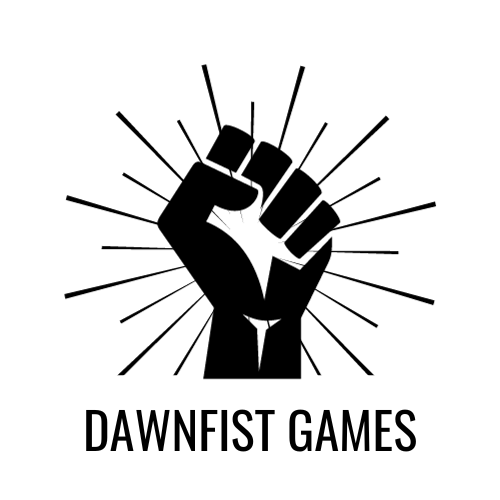A tool to minimize decision fatigue…
A critical skill for all game masters is the ability to improvise. But one thing that you rarely hear people talk about is the challenge of making the improvisation feel fair and “game driven” rather than completely driven by the GMs mood that day. For example, the PCs might ask the GM if there is anything flammable in the cult leader’s chamber, which might hint at the fact that they want to try to set him ablaze instead of charging him head on. 99% of all modules will lack this kind of super granular information in its room descriptions, but that doesn’t mean that there couldn’t be something highly flammable in the chamber. So it’s up to the GM to decide, meaning, a judgment call, meaning the answer to the question will depend on the style of GMing or the mood of the GM that day, and that is a burden that many GMs don’t feel comfortable with.
This is where dice oracles help, because GMs are already forced to make enough decisions, they don’t need more responsibility on their shoulders. Dice oracles are a fundamental part of solo role-playing, since you need some kind of tool to help decide what happens. But they can also be used in traditional play, and help the GM by offloading some work and decision making.
Dice oracles in brief
At their core, dice oracles are just random roll tables, but you use them to answer questions you don’t have the answer to, which differ from regular random tables, like encounter tables in a dungeon; you know what creatures live there, you just don’t know which one of them shows up when the PCs are resting. But they can of course be used together with generator tables, like an NPC generator or random encounter generator.
There are a million things the players could ask the GM, where there is no pre-planned answer, all of these situations are a great use case for dice oracles. Some examples:
- Is there anything flammable in the cult leader’s chamber?
- Is there a back entrance to the inn?
- Can the chandelier support the weight of the barbarian?
It would be ridiculous to expect GMs to plan for all these things, so getting help from a simple tool is always welcome.
Below I will describe three types of dice oracles, from the simplest one to the most complex one. I’ll go through how they work and give some examples of questions they can help you answer.
Simple – The D6 Oracle
The most simple variant is the one used in Adventurous fantasy RPG. All you need is 1D6. Whenever the GM needs help answering a question in an unbiased and randomized manner, the D6 is rolled, and the below table consulted:
- 1-2 = Bad for the players
- 3-4 = Neutral for the players
- 5-6 = Good for the players
It’s as simple as that! But you can of course make it a bit more nuanced if you like, where closer to 1 means worse, and closer to 6 means better for the PCs. I personally use this at least 5-7 times each session, answering questions posed by the players such as: “I want to ask the innkeeper if he likes fishing” or “Are there any heavy furniture in the room that we can barricade the door with?“. Using this dice oracle alleviates me of a lot of minor decision making, the kind that over time stacks up and drains my creativity and mental sharpness.
Slightly more complex – Opposing D6 oracle
A slightly more advanced dice oracle is the Opposing D6 Oracle. It works by having two D6s of different color at hand (preferably white and black). One die is the Yes or “Positive die”. The other is the No or “Negative die”.
Whenever you need help answering a question, just roll the dice and read the results.
- If the Yes die is higher than the No die, the outcome/answer is positive for the players, the opposite is true if the No die shows the higher result
- The difference between them acts as a scale that dictates how bad/good the outcome is
Example (white die is Yes, and black die is No)
The PCs are chased into a room by an angry troll, the room has no other doors. One player asks the GM: “Are there any windows?“. The GM hasn’t really thought about it, and the map from the published module doesn’t specify wether there are windows. This is the perfect time to use a dice oracle!
The GM rolls the two D6s, the white one shows a 5 and the black one a 1, so the answer is in favor of the PCs and by a wide margin as well, since 5 is much greater than 1.
The GM replies: “Yes, there is a window close to you, and it’s too small for the troll to fit“
The above example clearly illustrates how the dice oracle helped improvise in a fair and randomized manner. Since the white die showed the highest number and the difference between them was so great, the window was just big enough for the PCs. If the white die would have shown a 3 and the black die a 2, then it would have made sense if the window was locked, forcing the PCs to risk cutting themselves when breaking it and squeezing through.
Complex – The Multi-table, Multi-dice Oracle
The most complex type of dice oracle consist of multiple roll tables with many different columns, often used for different situations, and with different types of dice. Some examples of tables you usually se in more complex oracles are:
- Action types
- Reactions
- Drives
- Biomes
- Alignments
- Weather types
- Creature attributes
- Object attributes
- Social reactions
- Events
- Location types
By rolling on such tables, and often combining them with each other, you can get millions of possible combinations that are meant to give you creative prompts to build off of and help you decide what happens.
As you can see, the simpler dice oracles are often used to answer questions about what happens in the fiction whereas the complex dice oracles are more often used to generate basically anything. So the line between oracle and generator is kind of blurred when it comes to the complex oracles, and the most complex oracles are primarily used for GMless play or solo play, where you as the player need all kinds of prompts to decide what happens and the details of any given scenario.
Closing thoughts on dice oracles
The purpose of dice oracles is to supply the GM with just enough information to light a creative spark, and more easily improvise. They are a great tool to help minimize decision fatigue but also remove any moral anxiety you might feel when deciding something that might not be beneficial for the players. All these things are real issues that many GMs face, so I personally find dice oracles a great tool to make my game much smoother and easier to run.

